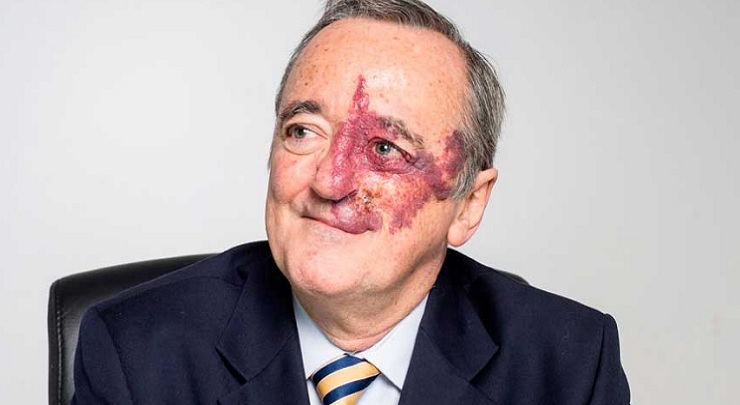Oncologist Mariano Barbacid presents at the UB the documentary about his scientific career

“El camino inverso” is the title of the documentary about the scientific life of the prestigious oncologist Mariano Barbacid. It will be broadcasted on May 26 at 5:00 pm in the Aula Magna of the Historical Building of the University of Barcelona, in an open event, which will include the attendance of Barbacid himself.

“El camino inverso” is the title of the documentary about the scientific life of the prestigious oncologist Mariano Barbacid. It will be broadcasted on May 26 at 5:00 pm in the Aula Magna of the Historical Building of the University of Barcelona, in an open event, which will include the attendance of Barbacid himself.
The documentary, produced under an interview format, is a fifty-minute piece that explores the scientific career of Mariano Barbacid, author of decisive findings in the understanding and the approach of treatments for oncological diseases. Produced by Álvarez Quirós Brothers Foundation and K2000 (Mediapro), it premiered in Madrid on 20 November 2022, and it was screened on 19 January at the Faculty of Chemical Sciences of the Complutense University of Madrid.
Barbacid shares with the audience his vision and analysis of national and international research, and he reflects on the importance of basic research and the need to encourage scientific vocations and support research teams.
After the screening of the documentary, a colloquium will be held and it will include the participation of Mariano Barbacid; the vice-rector for Research, Jordi García-Fernández; the vice-dean for Research at the Faculty of Medicine and Health Sciences of the UB (Clinic Campus), Neus Agell; the professor of the same faculty, Ramon Bartrons, and Professor José Luis Rosa, who will act as the chairperson. José Luis Rosa, vice-dean of Research at teh Faculty of Medicina and Health Sciences (Bellvitge Campus), will coordinate the event.
The discovery of the first human oncogene
Mariano Barbacid, one of the most internationally recognized scientists in the field of oncology, joined the National Cancer Institute (United States) in 1974, where he completed his postdoctoral training. He is currently the head of the Experimental Oncology Group at the Spanish National Cancer Research Center (CNIO), one of the world’s leading biomedical research centers, which he founded in 1998, and AZA-CNIO professor of Molecular Oncology.
In 1982, Barbacid published in the journal Nature the discovery of the first human oncogene —known as H-Ras, a mutated gene capable of causing cancer— and the identification of the first mutation associated with the development of cancer in humans. Throughout 1982, all his work, published by the team on the molecular biology of human tumours, brought his laboratory at the international map of oncology research.
Barbacid, honorary doctorate at the UB
Member of the Academy of Sciences of the United States, Barbacid is the first Spaniard to be named Fellow of the Academy of American Association for Cancer Research. He has received the J. Steiner Award (Bern, 1988), the Ipsen Prize for Neural Plasticity (Paris, 1994), the Charles Rodolphe Brupbacher Prize for Cancer Research (Zurich, 2005), the Medal of Honor of the International Agency for Research on Cancer (Lyon, 2007) and the Brukitt Medal (/Dublin, 2017), among other awards. He has also been awarded the King Juan Carlos I Award (1984), the Order of the Second of May (2011) and the Ramón Santiago y Cajal National Research Award (2022), an award given by the Ministry of Science and Innovation that honors “his pioneering and internationally recognized contributions in the field of molecular oncology, in which he has achieved world leadership positions in Spain and the training of a new generation of researchers”.
Barbacid got an honorary doctorate from the International University Menéndez Pelayo (1995), the University of Cantabria (2011) and the University of Barcelona (2014). In his honorary doctorate ceremony at the UB’s Paranimph —a ceremony sponsored by Professor José Luis Rosa—, Mariano Barbacid recalled: “Cancer, despite the singular nomination, is not a disease but a group of diseases, which in many cases have few links between them, beyond the disordered growth of our cells. Today we know that the vast majority of tumours, especially those with a lower survival rate, accumulate hundreds of mutations that affect a wide variety of cellular processes”. And he concluded: “We must hope that science, sooner or later, will open the doors to a better and more effective medicine. But without research, there is no progress”.
